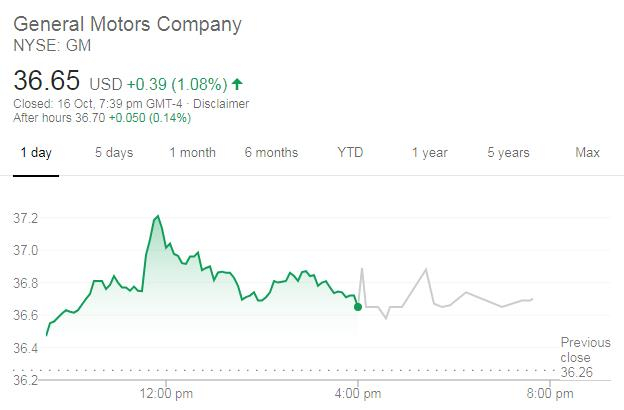General Motors (GM) and the United Auto Workers (UAW) union reached a tentative deal on Wednesday for a new four-year labor deal, moving closer to ending a costly month-long strike that shut down GM's most profitable factories in a test of wills over the future of U.S. auto industry jobs.
Neither the UAW nor GM released details of the deal, which is subject to ratification by UAW members, a process that could last up to two weeks. A new contract is expected to include commitments by the automaker to invest billions in U.S. vehicle factories to build new generations of electric vehicles, as well as U.S. electric vehicle battery plants. Union leaders worry that a shift to electric vehicles could cost thousands of jobs at engine and transmission factories.
Details of GM's last offer emerged over the weekend and Reuters had reported that the company boosted the amount it plans to invest in the United States to about nine billion U.S. dollars from its previous offer of seven billion U.S. dollars. That figure is unchanged in the final agreement, a person briefed on the matter said.
The deal also would create or retain 9,000 UAW jobs, a "substantial" number of which will be new, the source said. GM in September said its initial offer would support 5,400 jobs – and a majority of those would be new jobs.
If the contract is ratified, UAW workers who have been living on 250 U.S. dollars a week in strike pay are expected to get one-time signing bonuses, as well as increases to base pay. The union had also pushed for temporary workers at GM plants who earned less than permanent UAW employees to get an easier path to full-time wages and benefits.
GM shares closed 1.1 percent higher at 36.65 U.S. dollars on Wednesday after rising as much as 2.6 percent during the day. Shares of some auto parts suppliers also rose after the UAW announced the tentative deal. The cost of the strike – and how quickly those costs can be recovered – will be a focus for investors as the automaker and its major suppliers report quarterly results over the next several days.

Analysts have estimated the strike cost GM more than two billion U.S. dollars in lost production, though some of that could be made up through overtime work. The strike halted production of GM's large pickup trucks and sport utility vehicles – key drivers of the company's global profit.
(Cover image: United Auto Workers union members and their families rally near the General Motors Flint Assembly plant on Solidarity Sunday in Flint, Michigan, U.S., October 13, 2019)
(with input from Reuters)